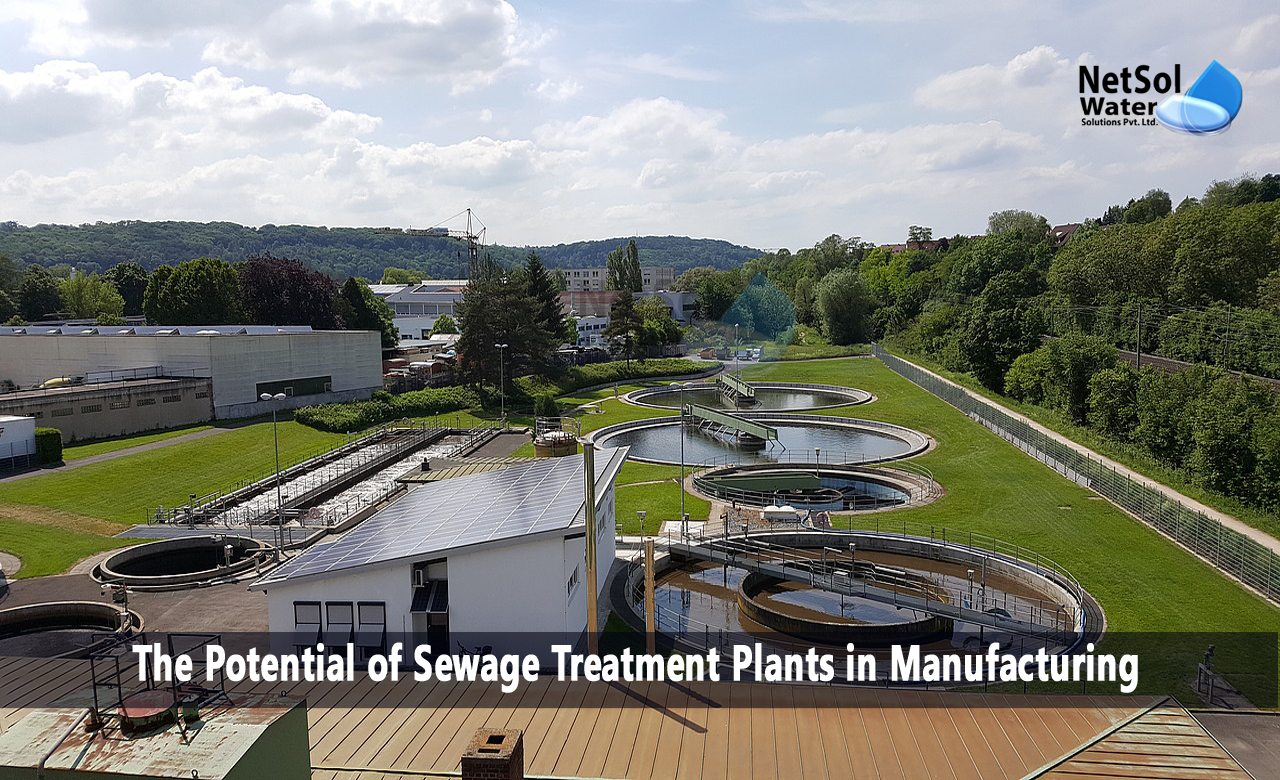What are the Potential of Sewage Treatment Plants in Manufacturing?
In the manufacturing industry, driving efficiency and cost savings are key priorities for sustainable growth and profitability. While sewage treatment plants (STPs) are commonly associated with environmental protection, they also hold tremendous potential for optimizing operational efficiency and generating significant cost savings. By harnessing the capabilities of STPs, manufacturers can not only meet regulatory requirements but also unlock tangible benefits that positively impact their bottom line.
-
Wastewater Treatment and Resource Recovery:
Efficient wastewater treatment is a fundamental function of STPs. By implementing advanced treatment technologies, such as membrane bioreactors and chemical precipitation systems, manufacturers can effectively remove pollutants from their wastewater streams. In addition to meeting regulatory compliance, treating wastewater onsite reduces the need for expensive off-site disposal services. Moreover, through resource recovery techniques like anaerobic digestion, biogas can be generated and utilized as an energy source, reducing reliance on external energy suppliers and lowering energy costs.
-
Water Conservation and Cost Reduction:
Water scarcity and rising water costs pose challenges for manufacturers. Implementing water conservation measures, such as recycling and reusing treated wastewater, reduces the reliance on freshwater sources and minimizes water-related expenses. By implementing efficient water management practices and optimizing processes to minimize water losses, manufacturers can achieve substantial cost savings and enhance their sustainability profile.
-
Waste Minimization and Material Recovery:
Sustainable manufacturing involves minimizing waste generation and maximizing material recovery. By integrating STPs into manufacturing processes, manufacturers can recover valuable resources from wastewater. Nutrient-rich biosolids, obtained during the treatment process, can be repurposed as organic fertilizers or soil amendments, reducing the need for expensive commercial fertilizers. This closed-loop approach not only minimizes waste generation but also lowers procurement costs, contributing to overall cost savings.
-
Energy Efficiency and Renewable Energy Integration:
Energy consumption is a significant operational cost for manufacturers. STPs provide opportunities for energy efficiency improvements and renewable energy integration. By optimizing equipment, adopting energy-saving technologies, and implementing energy management systems, manufacturers can reduce energy consumption within their wastewater treatment processes. Furthermore, renewable energy sources like solar panels or biogas can be integrated into STPs to offset electricity demands, resulting in long-term cost savings and a reduced environmental footprint.
-
Regulatory Compliance and Risk Mitigation:
Compliance with environmental regulations is crucial for manufacturers to avoid penalties and reputational risks. By integrating STPs into their operations, manufacturers can ensure compliance with wastewater discharge regulations. Proactive adoption of best practices and advanced treatment technologies enables manufacturers to mitigate environmental risks, ensuring the long-term sustainability of their operations and safeguarding their reputation.
-
Continuous Improvement and Data Analytics:
Regular monitoring, data analysis, and continuous improvement are essential for optimizing the performance of STPs. By leveraging real-time data and advanced analytics, manufacturers can identify inefficiencies, detect anomalies, and implement targeted improvements. This data-driven approach allows for better process control, optimized resource utilization, and informed decision-making, resulting in enhanced efficiency and cost savings.
Conclusion:
Sewage treatment plants offer manufacturers a unique opportunity to drive efficiency and generate cost savings while fulfilling their environmental responsibilities. By leveraging advanced treatment technologies, embracing resource recovery, optimizing water usage, and integrating energy-efficient practices, manufacturers can enhance their sustainability profile and improve their financial performance. STPs are no longer just about meeting regulatory compliance; they have become valuable assets for cost reduction, waste minimization, and resource optimization. By fully unleashing the potential of sewage treatment plants, manufacturers can achieve a competitive advantage, enhance operational efficiency, and contribute to a more sustainable future.
Netsol Water is Greater Noida-based leading water & wastewater treatment plant manufacturer. We are industry's most demanding company based on client review and work quality. We are known as best commercial RO plant manufacturers, industrial RO plant manufacturer, sewage treatment plant manufacturer, Water Softener Plant Manufacturers and effluent treatment plant manufacturers. Apart from this 24x7 customer support is our USP. Call on +91-9650608473, or write us at enquiry@netsolwater.com for any support, inquiry or product-purchase related query.



